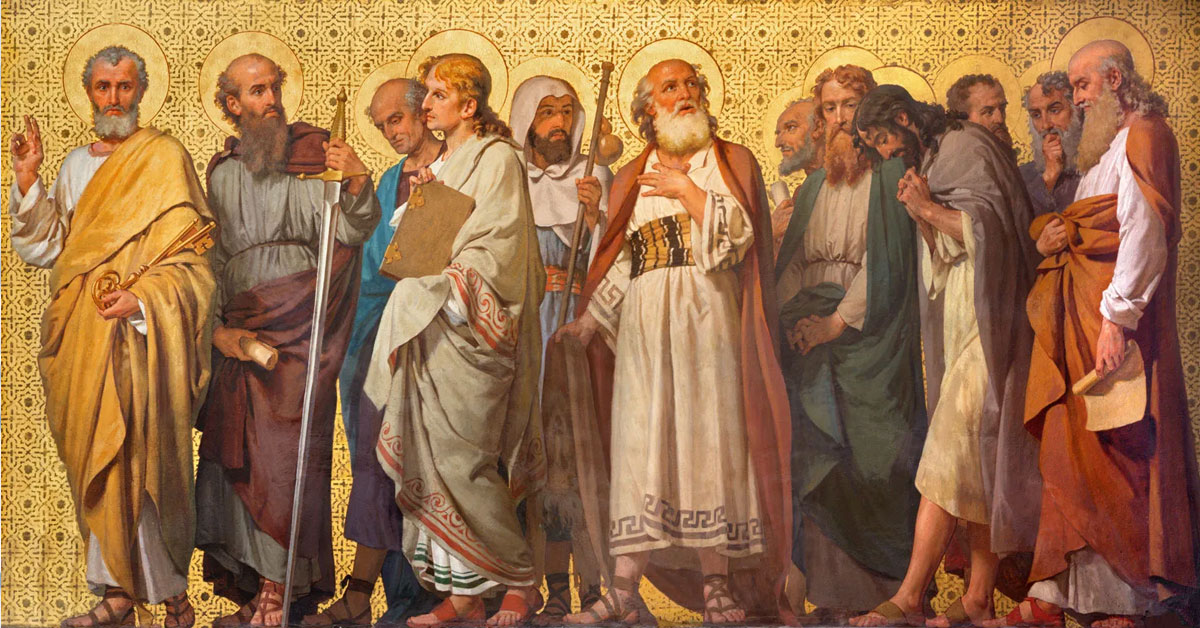The Book of Acts is a continuation of the Gospel of Luke. Luke ends the Gospel of Luke and starts the book of Acts with the conversation Jesus and the disciples had on the walk to Bethany (Mount of Olives). Luke finishes Acts with the Apostle Paul in Rome awaiting his first trial.
Just before Jesus’ ascension, Luke records a prophecy by the Lord Jesus (Acts 1:8). The Book of Acts are the record of events fulfilling this prophecy.
Acts can be divided into three parts:
1. Chapters 1-12—the growth of the gospel from Jerusalem outward to Antioch of Syria
2. Chapters 13-21—the spread of the gospel from the base at Antioch through Paul’s three missionary journeys
3. Chapters 22-28—Paul’s trials starting in Jerusalem and his journey to Rome
Acts Chapters 1-7 occurs at Jerusalem and are about the growth and activities taking place then and there. In chapter 1, the disciples receive direction to stay in Jerusalem, waiting for the promised gift of the holy spirit, and we learn of the purpose of the book (1:1-11). Then the apostles take upon themselves the task of finding a replacement apostle by selecting Matthias (1:12-26).
Chapter 2 records the begettal of holy spirit at Pentecost and a time of growth immediately after (2:1-13), Peter’s address to the crowd (2:14-41), and a time of the early Church fellowshipping, breaking bread, praying and sharing together (2:42-47).
Chapter 3 records the power of the holy spirit working through the lives of the Apostles and brethren, Peter’s usage of the holy spirit to heal (3:1-10), and then his address to the crowd in Solomon’s Colonnade (3:11-26).
Chapter 4 is a continuation of chapter 3 with Peter and John called before the Sanhedrin. While speaking, Peter and John are arrested by the priests and temple guards (4:1-4), and they are commanded not to teach or speak in Jesus’ name (4:5-22). Chapter 4 continues with the believers praying together and being filled with the holy spirit (4:23-31). They share in common, and we are introduced to Barnabas (4:32-36) who plays a pivotal role with the soon to be encountered Saul of Tarsus.
Chapter 5 continues with more evidence of the power of the holy spirit working through the lives of the apostles and brethren. We learn from the example of Ananias and Saphira to respect the holy spirit (5:1-16). We see the church growing steadily (5:12-16; 42), and the apostles jailed, angelically released and appearing before the Sanhedrin (5:17-24).
In Chapter 6, as the number of believers increased, so did the need for administration. In response, they choose and appoint seven deacons full of wisdom and the holy spirit (6:3). We also learn many priests become believers also (6:7).
In Chapter 7, we are introduced to the first martyr, Stephen, before the Sanhedrin court. We read of his ability to witness (6:9-10), the witness he gives at his Sanhedrin trial and his death at the feet of Saul (7:54-60).
Then we encounter Acts 8:1, the first of three (Acts 8:1, Acts 9:31, Acts 11:19) pivotal verses in Acts. 8:1 tells us the gospel is expanding outward because of persecution.
Chapter 8 is about the persecution of the Church and the accelerated spread of the gospel outward as the believers fled Jerusalem. We meet Saul of Tarsus (8:1-3). Philip the evangelist converts and baptizes many in Samaria (8:4-13), Peter and John come from Jerusalem to confirm the results of Philip’s work (8:14), and the Samaritan believers receive the holy spirit (8:15-17). Acts 8 ends with Peter’s rebuke of Simon the sorcerer (8:18-24), we learn of Philip’s interaction with the Ethiopian Eunuch (8:25-38), and Philip appeared in Azotus, then made his way to Caesarea (8:39-40).
In Chapter 9, we have the accounts of Saul’s persecution of the early church (9:1-3) and his conversion on the way to Damascus (9:4-31). Then we read of Peter’s miracles outside of Jerusalem (9:32-43).
All of which introduces us to our second key pivotal verse—Acts 9:31. With Saul’s conversion on the way to Damascus “the church throughout all Judea and Galilee and Samaria enjoyed peace, being built up; and going on in the fear of the Lord and in the comfort of the holy spirit, it continued to increase.”
The activities recorded in Acts shift for the second time in Chapter 10. So far, we learned of the activities in Jerusalem, the dispersion of the Jews, and the spread of the gospel message as they took it with them. Now we start to learn about the circumstances leading up to a major event precipitating future expansion and conflict; the conversion of Cornelius and the inclusion of Gentiles into the church. Chapters 13-21 deal with Apostle Paul’s three missionary efforts to the Gentiles, and chapters 22-28, tell of his persecution because of it.













